#kenyan history
Text
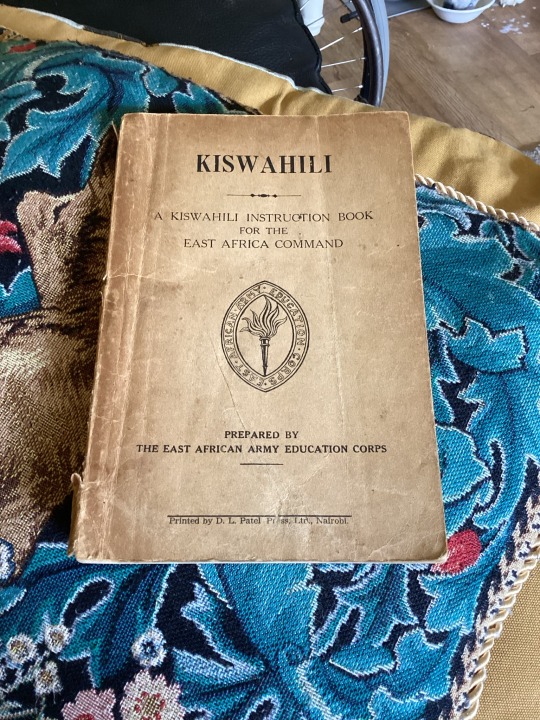
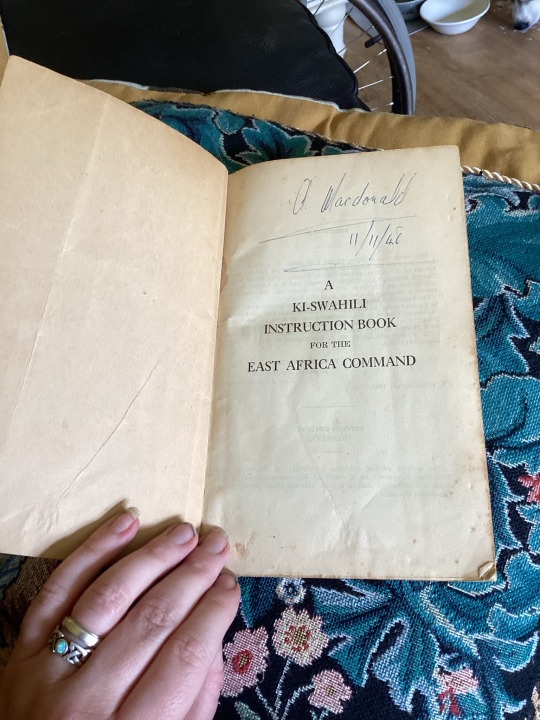
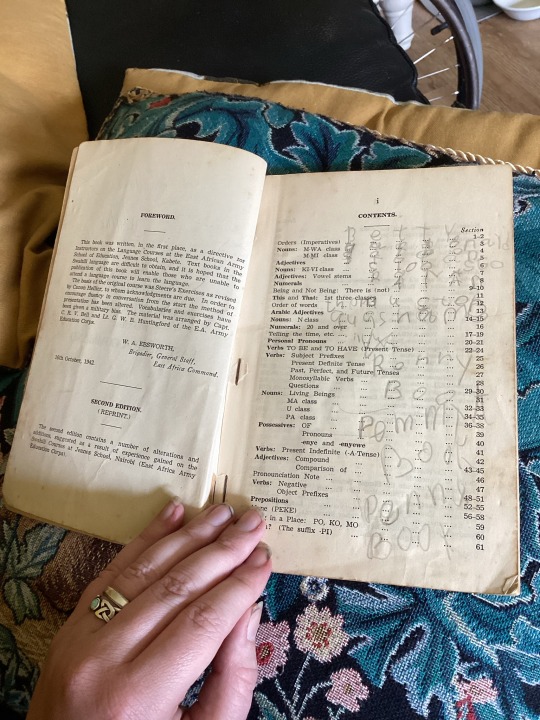
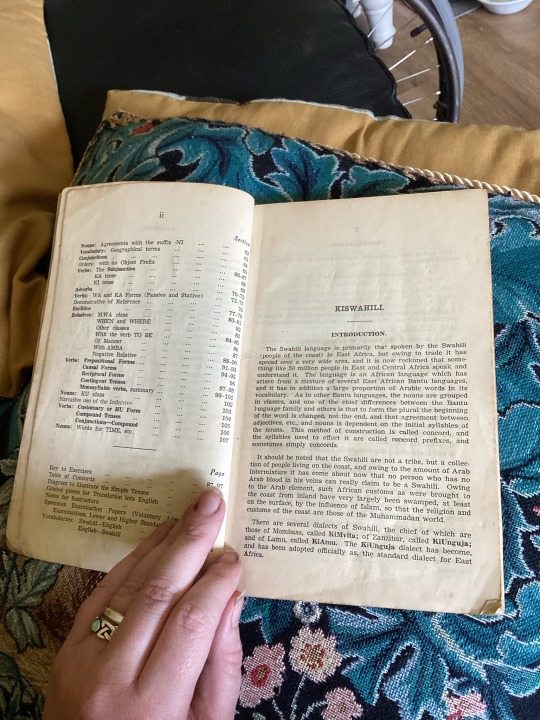
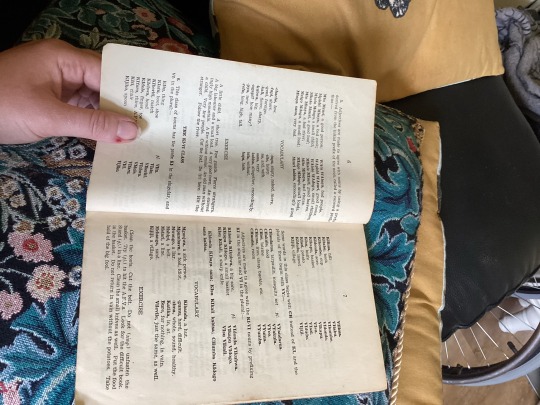
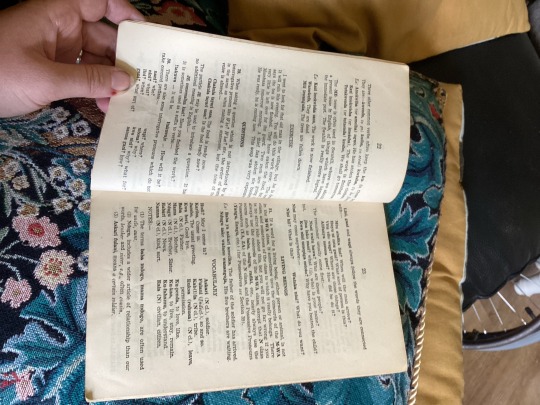
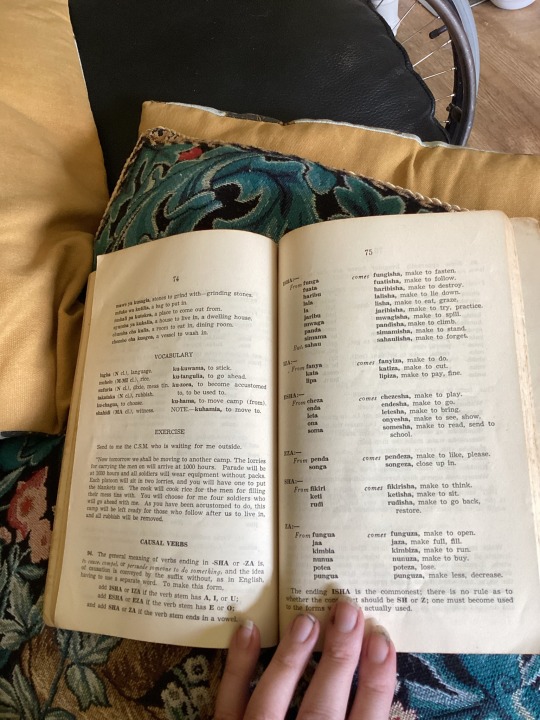
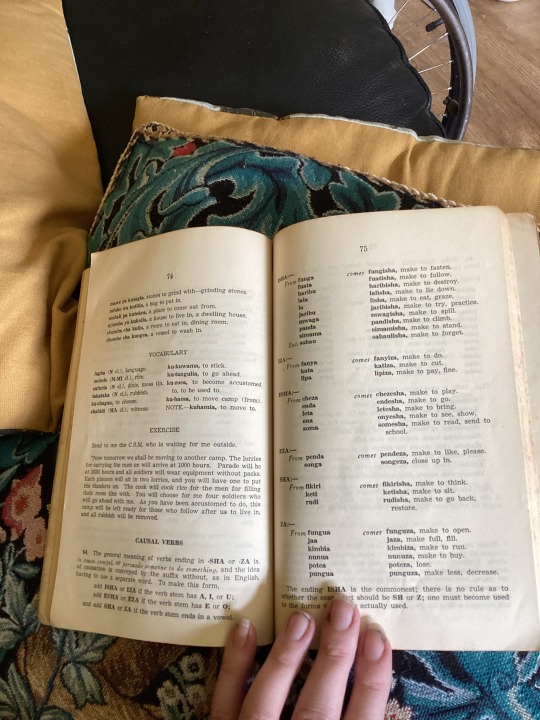
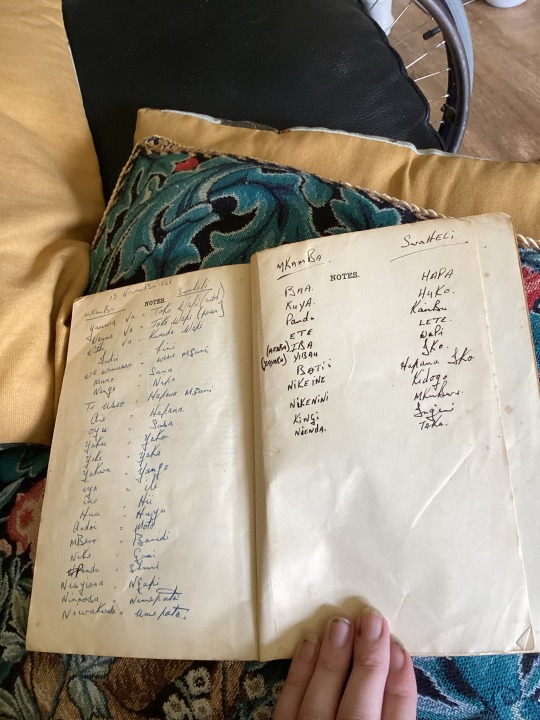
A fascinating and bittersweet part of my family history here, and a sign of how the lives of very ordinary people end up entwined with the wider world, which here in Britain in the mid-20th century meant with Empire.
This book belonged to my Granda, from when he was sent to Kenya to do National Service. He was, of course, a working class white boy from urban Glasgow, who had already been working full time since he was 14. I grew up with his stories about his time out there - it was frightening, and difficult, because it was so different from what he knew, and he had no choice or say in where or when he went, but it was also incredibly exciting and interesting for him.
I’m entirely sure that he, like most of my family, was neurodivergent, and my guess is autistic; I recognise so many of his mannerisms and features from myself. That can only have made being suddenly moved right out of his context so much more difficult for him. I know he found army discipline initially very difficult; much like me, he always found being told what to do for no good reason incredibly challenging, and all his later jobs were either self-employed - he was a taxi driver for 30+ years - or very self-directed. But he also got to learn to drive a jeep, and then to join the Signals Corps and learn radio physics, which had been a special interest for him since he was a child, and he would never have managed to fund a university degree.
And of course, as this book shows, he got to meet incredibly interesting people from somewhere very different from his own culture, and learn to speak their language. When I was small, he told me a lot of the funniest stories, like the time he and his pal borrowed a couple of horses and mocked up cowboy outfits because all the Kenyan guys in his platoon had only really seen white people in cowboy movies before they joined up, and had a running joke that all of them were actually cowboys at home, so they could go in and be like “Yeehaw, you’ve found us out!”
But he also told me a lot of the stuff that bothered him about being part of the machinery of Empire even when I was small, and, as he said, “I was just a wee boy then myself and didn’t know anything about anything either”; things like him being put in command of a Kenyan squad of black soldiers literally just because he was white. He told me about being expected to give orders to this incredibly experienced sergeant in his forties, who had been through WWII, when he was a 17 year old working class boy from Glasgow, and being very much “there is no way this is remotely right, or makes any sense whatsoever.” My Granda, of course, was a member of the Communist Party, and I think being in the position of seeing - and having to be part of - colonialism and Empire close-up definitely influenced his politics later in life.
He also got to meet just ordinary Kenyan people too; he told me stories about going to the markets to buy stuff from old ladies who reminded him of the ladies selling in the Barras back in Glasgow, and when one of his guys got married and brought his new wife in to meet everyone. She was initially very nervous, but then laughed her head off as my Granda tried out his Swahili on her.
My Granda died in 2019, just a few months before COVID first hit. He’s still very present to me in so many ways - I have a photo of him up in my kitchen, and inherited his compost bins and rain butt for my garden - but I always think of him in particular when I’m working on my history stuff. I’m going to treasure this book.
I think a lot about this whenever anyone claims modern Brits “shouldn’t have to feel guilty about Empire”. This is a place where my direct family history intersects very directly with Empire just two generations back from me. And yes, my Granda was just a radio operator and a driver, was never more than a private, and happily left the army as soon as he could. But he was still part of the imperial machinery when Britain was doing horrendous shit in Kenya, little as he wanted to be, and much as he felt having to do that was imposed on him as a Scot for an English Empire.
And of course he, like I, grew up and have lived our lives in Glasgow, a city whose wealth was built on imports from sugar plantations, and imperial trade, and thus from slavery. And so both of us benefitted from that, despite being just ordinary working class people.
This is the nature of Empire. The benefits and the oppression are both frequently diffuse. Co-option happens. While some people benefit *enormously* - there are still many *incredibly* wealthy families descended from slave owners who have only used that wealth to further entrench their privilege - and far more only suffer exploitation, in such a vast institution so many people live in a complex place where they experience both benefits and exploitation, in a thousand complex variations.
So I don’t see it as being about “guilt”, but about acknowledgement, and about reparations. There are things I owe to people who are still experiencing adverse circumstances, poverty and exploitation now because of things the British Empire did that I am still benefitting from the results of. Sometimes that’s direct mutual aid, to individuals or organisations. Sometimes it’s fighting for my country to provide reparations, change its actions, or even just acknowledge actions and ongoing benefit. And sometimes it’s learning, and passing that knowledge on.
#family history#20th century history#national service#british empire#african history#kenyan history#scottish history#social history#long read#sorry I’m not that good at concise about this stuff#reparations#institutional racism
6 notes
·
View notes
Text
As with other perpetrators of atrocities the British Empire made good efforts to conceal them:
The British Empire was able to throw a long shadow of secrecy on just how it went about suppressing the Mau Mau War , but history in the long run seldom keeps things truly quiet if people are determined to look for the truth. So has it proved here.
#lightdancer comments on history#black history month#african history#military history#black history#kenyan history#mau mau war#british empire
4 notes
·
View notes
Text

African Homophobia is a lasting legacy of Colonialism.
🏳️🌈🇰🇪🏳️⚧️
#history#mugawe#kenya#lgbt#african history#meru#kikuyu#lgbt history#pre colonial africa#traditional africa#kenyan history#colonization#british empire#transgender#pride#gay#homophobia#lgbtq#lgbtq history#africa#love not hate#east africa#african culture#colonial africa#indigenous people#nickys facts
27 notes
·
View notes
Text
History Shorts #8
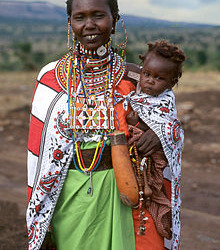
In 2001 Wilson Kimeli Naiyomah was studying in the United States at a university in California. During his time there the United States would experience one of it’s national tragedies known as 9/11.
9/11 was a terrorist attack against the nation that ended up with several hijacked planes crashlanding dangerously in several locations. The primary location spoken about and remembered in the US were the World Trade Center’s two towers. Over one thousand people died that day from the event alone.
Months later Kimeli headed home to Kenya. Kimeli was actually apart of the Maasai (Masai) people, a smaller nomadic ethnic group in Kenya. Upon returning home Kimeli told his people about what he witnessed in the United States.
They had heard about the disaster before, but it didn’t truly reach them until hearing it from one of their own. The Maasai people were so touched and saddened by the event that they decided to get together to send the United States a gift.
14 cows were given to a US ambassador as solidarity. Although it may not seem like an amazing gift to Americans, to the Maasai cows are incredibly sacred and are symbols of life.
The people of Manhattan were touched. but the United States was worried about transporting the cows and something going wrong. So the cows were kept in an US embassy in Kenya, were they still prosper to this day.
Kimeli worked with James Cloutier to make a commemorative painting. Which hangs in the 9/11 Memorial & Museum in New York. A copy also remains in Kenya.
#9/11#kenya#united states history#2000s#history#american history#art history#9/11 memorial & museum#wilson kimeli naiyomah#maasai tribe#maasai people#masai tribe#masai people#religious history#united states#kenyan history
3 notes
·
View notes
Text
IRENE KOKI MUTUNGI // PILOT
“She is a professional pilot in Kenya, the largest economy in the East African Community. She was the first female on the African continent to become certified as a Captain of the Boeing 787 "Dreamliner" aircraft. She flies for Kenya Airways, the national airline of Kenya.”

1 note
·
View note
Text
About A Feminist History Of:
A Feminist History Of is a pioneering platform dedicated to uncovering and celebrating the rich history of women in Kenya. Through engaging content, immersive coloring book zines, and insightful podcasts, we strive to bring to light the often-overlooked narratives of remarkable women who have shaped Kenya's history.
Our content caters to both children and adults, offering a multifaceted exploration of the diverse experiences and contributions of women throughout Kenya's past. We are committed to providing inclusive and intersectional perspectives that inspire dialogue and promote the understanding of gender equality, empowerment, and representation.
With a passionate focus on feminist principles, A Feminist History Of aims to spark curiosity, encourage learning, and cultivate a deeper appreciation for the pivotal roles women have played in the tapestry of Kenyan history. Join us in rediscovering and honoring the invaluable legacy of women in Kenya through our unique and enlightening offerings.
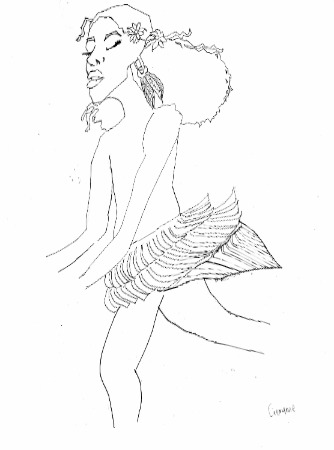
#AFeministHistoryOf#AFHOKe#art#African feminism#Black Feminism#Kenya#Kenyan feminism#Kenyan history#African mythology#Disability Justice#intersectionality#womens rights#feminism#art zine#podcast#independent#youtube
1 note
·
View note
Text
The Kenya Pioneers :: Errol Trzebinski
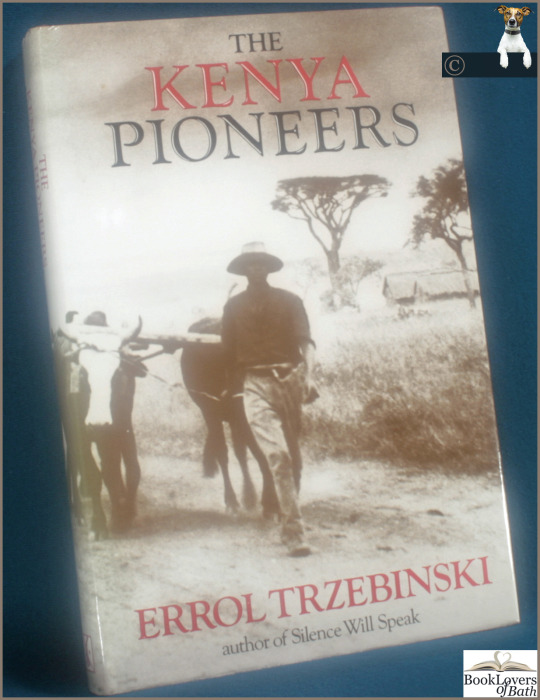
View On WordPress
#0-4347-9502-x#1909 roosevelt safari#african history#african land settlement#bibi kiboko#books by errol trzebinski#bror blixen#chania falls thika#colonisation kenya#east africa protectorate#first edition books#frontier pioneers#german east african campaign#history british kenya#history kenya#history mombasa#indian coolies#karen blixen#kenyan history#laibon lenana#mbagathi#meinertzhagen intelligence team#pioneer mary#ruwu bridge#stanley hotel#uganda railway construction#ugandan history
1 note
·
View note
Text
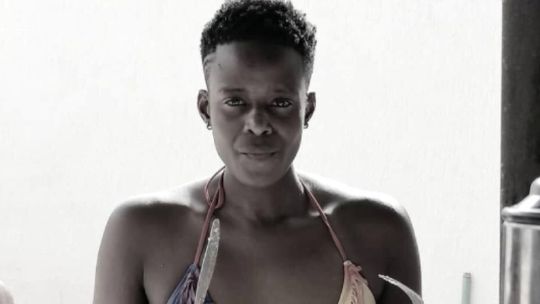
Sheila Lumumba (deceased)
Gender: Non binary (they/them)
Sexuality: Lesbian
DOB: Born 1997
RIP: 15 April 2022
Ethnicity: Kenyan
Occupation: Hotel worker
#Sheila Lumumba#lgbt history#lgbt rights#lesbianism#qpoc#non binary#lesbian#1997#rip#historical#black#african#kenyan#poc#hotel worker
95 notes
·
View notes
Text

Backlash Blues by Wangechi Mutu, mixed media on mylar, 2004
#art history#contemporary art#women artists#afrofuturism#african art#feminist art#art curator#curators on tumblr#wangechi mutu#kenyan art
31 notes
·
View notes
Text
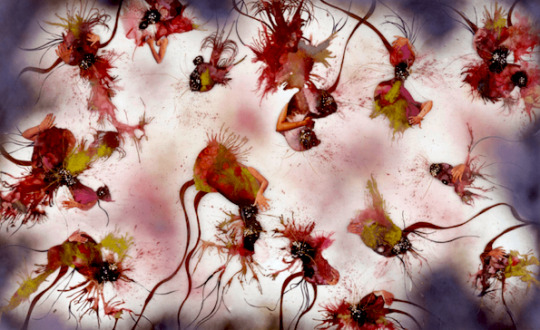
Daily Painting
Wangechi Mutu
CASSANDRA (2007)
12 notes
·
View notes
Text
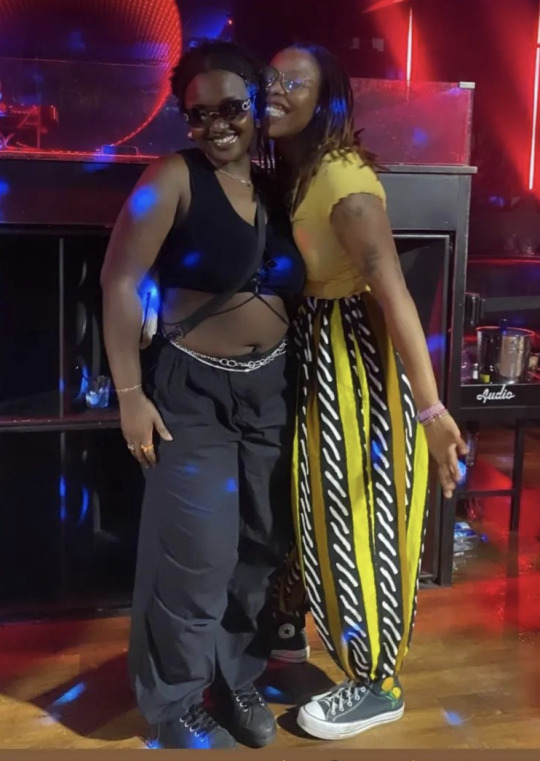
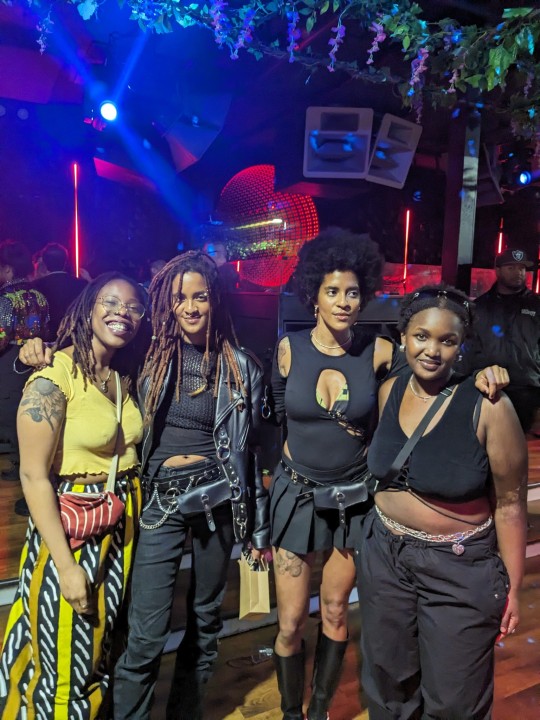
BlackJoy weekend was soooo heartwarming. I got to shake my ass, hug all the homies, frolick in the sun, and got to praise my favorite house DJs
#coco & breezy#met hella kenyans#me#personal#oakland#house music#make house music black again#blackjoy parade#black history month
6 notes
·
View notes
Text
i truly do love watching someone try food from my culture and like it. im chinese and i feel like i’ve grown up with this weird quasi-enjoyment from westerners (im mostly talking about americans) where they like chinese food like chow mein or “chinese take-out” and while i honestly don’t have any disdain for those foods and i like them too, there’s also the constant backdrop of people making dog eating jokes or actually mocking our legitimate food, like chicken feet or hot pot, or tofu, etc. basically just othering my food and my culture. but i really do love watching people eat food the way i ate it growing up and like it. nothing complicated, nothing fancy, just food that they wanted to try and liked it. and i’m a picky eater, i think it’s brave to try new foods, i’m often scared of it, so i appreciate when people can step outside of their own food culture and try something quite literally foreign to them and enjoy it for what it is. i appreciate that a lot.
#watched a kenyan man try spam w his fried rice and he said he loved it and it made me <3333333333#it often upsets me when people like. eat my cultural foods but not in the way i do not bc it's different or strange#but bc it so often feels like shedding the ancestry and the history that comes with a food#but this is just. eating a food the way my mom made it for me#and spam is a really interesting case bc it's not really like#'chinese' but it's very popular in hong kong cooking specifically which is where my family is from#and so it might not be historical and it might not even be chinese but it's like#it's food that i associate w my chinese food culture and he. tried it and liked it and i love that#and like i said i legitimately think trying new foods can be scary and daunting and i know sometimes it upsets me#so i do applaud anyone who goes out of their way to try a new food and have an open mind#jordan rambles#food
13 notes
·
View notes
Text
Next book down:
Wrapped up the next book. As the title indicates it looks at the Mau Mau War of the 1950s in the eyes of analyzing not simply revolutions, but peasant revolutions. What makes Mau Mau unique is that it really was a grass-roots peasant war against an unjust regime happening like the more popular understanding of a revolution, the oppressed masses rising against the oppressor. This was both its greatest strength, as it meant that there was no Aguinaldo moment of capturing a single leader who sought to command the movement, and its greatest weakness that ultimately contributed to its defeat.
It was too decentralized to be swiftly crushed and too decentralized and too traditional to wage an effective insurgency against a colonial power with modern weaponry. In this, and in this set of ironies, is the history of the revolution writ, and why it achieved ultimately the partial successes that paved the way for independent Kenya and why it ultimately crashed and burned beneath the weight of a totalitarian policy of imprisonment that saw PM Churchill emulate the very Nazis he'd crushed in WWII without a moment's hesitation.
The war of 1952-4 also illustrates a simple rule that most revolutions ultimately fail for the same reasons this one did. And yet the failed revolution was why Kenyan independence happened in the ways it did, and achieved the successes it did.
9/10.
0 notes
Text
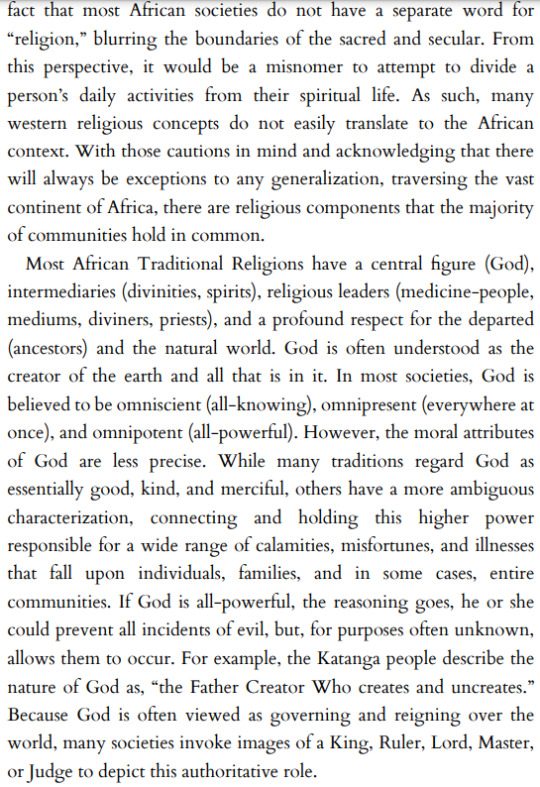
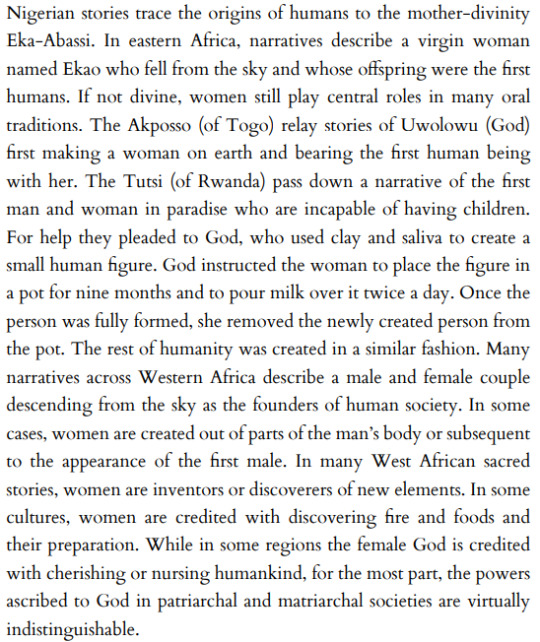





- Julius H. Bailey, “West African Traditional Religions.” in Down in the Valley: An Introduction to African American Religious History
#julius h. bailey#history#religion#katangan#nigerian#rwandan#sierra leonian#kenyan#tanzanian#mbuti#down in the valley
2 notes
·
View notes
Text
youtube
#youtube#news#defense#President Ruto#News#Partnership#History#Politics#Kenya#United States#International Relations#Leadership#President Biden#White House#Diplomacy#Meeting#Africa#Government#Summit#Global Affairs#World Leaders#First Lady#Greeting#Biden Administration#First Lady Ruto#Pres. Ruto#FLAWLESS#Kenyan Politics#Vice President#President
0 notes
Text
DR. WANGARI MAATHAI // ACTIVIST
“She was a Kenyan social, environmental and a political activist and the first African woman to win the Nobel Peace Prize. As a beneficiary of the Kennedy Airlift, she studied in the US, earning a bachelor’s degree from Mount St. Scholastica and a master’s degree from the University of Pittsburgh. She went on to become the first woman in East and Central Africa to become a Doctor in Philosophy, receiving her PhD from the University of Nairobi in Kenya. In 1977, she founded the Green Belt Movement, an environmental non-governmental organisation focused on the planting of trees, environmental conservation and women’s rights.”


0 notes